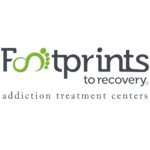Paranoia, anxiety, hallucinations. Meth psychosis can be terrifying, and anyone who’s gone through it will tell you it’s something you don’t want to experience. However, if you’re abusing meth, there’s a good chance you will experience meth psychosis at some point. Research shows meth psychosis is a problem for many people who use the drug recreationally. Studies have found that meth-induced psychotic disorder affects between 7% and 76% of meth users. The prevalence of meth psychosis is around 36.5%. This disorder is more common among people who have a lifetime diagnosis of meth use disorder (43.3%), but anyone who uses meth is at risk for it.
What is Meth Psychosis?
Chronic meth users are at risk for an effect of meth known as meth psychosis. This is also called amphetamine psychosis. Methamphetamine abuse causes brain changes that can flip your high from euphoria to a bout of meth paranoia. Meth psychosis and paranoid schizophrenia share some of the same symptoms. The experience can be very scary and unsettling to someone going through it and for the people around them.
Symptoms of meth psychosis may include:
- Seeing and hearing things that aren’t there
- Intense anxiety and paranoia
- Feeling things that aren’t there (tactile hallucinations)
- Violent behavior
- Depression
- Suicidal thoughts
- Hyperactivity
- Not making sense when speaking
When meth-induced psychosis occurs, you may also experience meth mites or “crank bugs.” This is the sensation of bugs crawling on your body. Some crystal meth users say they also have visual hallucinations, believing they see the bugs as well.
Other Signs of Meth Abuse
If you’re worried that a loved one is using meth, here are some other symptoms of meth abuse and addiction to be aware of:
- Extreme mood swings
- Dental problems, such as tooth decay and missing teeth
- Skin sores from scratching
- Obsessive or compulsive behaviors
- Isolating from others
- Dilated pupils
- Sudden weight loss
Also look for paraphernalia people use for shooting, injecting, or smoking meth. These may include:
- Glass pipes
- Aluminum foil
- Straws
- Plastic bags
- Syringes
- Pipe cleaners
- Rubber bands
What Causes Meth Psychosis?
Meth causes your brain to produce extreme amounts of dopamine, which is sometimes called the “feel-good chemical.” Excessive dopamine produces a sense of euphoria . It’s also a chemical tied to several important body functions, like:
- Brain functioning
- Motivation
- Movement
- Reproduction
- Reward
The overproduction of dopamine is what can cause psychosis from meth abuse. Your brain eventually becomes depleted of dopamine, which interferes with how it communicates to other parts of your body. The effect of methamphetamine dependence on your limbic system also contributes to meth paranoia. The limbic system is tied to emotions, and meth psychosis can trigger feelings like intense anxiety.
How Long Does Meth Psychosis Last?
Meth psychosis can last for up to a week, but it may persist for months in some cases. Repeated meth abuse can lead to long-term psychosis. This is a mental disorder that causes you to see or hear things that aren’t there and have paranoid delusions and severe anxiety. Repeated use of methamphetamine can cause permanent psychological effects, like paranoia and psychosis.
One study examined 258 meth users who had been abusing drugs for an average of seven years. Of the 189 patients:
- 73% had restarted using illicit drugs.
- 89% had psychotic symptoms that lasted for less than a month after they stopped taking drugs.
- In 60%, the psychotic symptoms resolved within a month of stopping drug use.
- 30% had symptoms that persisted for one to six months.
- 10% had symptoms that persisted for more than six months.
Compared to the other two groups, patients whose symptoms persisted for more than six months were more likely to have:
- A family history of mental illness
- An earlier age of onset of substance abuse
- A longer duration of drug abuse prior to the study
- Re-hospitalization during the follow-up period
Psychotic symptoms at the time of follow-up
How to Help Someone with Meth Psychosis
The time it takes to come out of a meth psychosis varies. According to the National Institute on Drug Abuse, often meth paranoia may only last until the drug has left your system. Other times, you develop psychosis as a part of meth withdrawal, which can last a few days as the central nervous system tries to rebalance itself. There are some methamphetamine users who experience psychosis symptoms for months or even years after quitting meth.
There isn’t a cure for meth-induced psychosis. Sometimes doctors prescribe medications to help with long-term psychotic symptoms, but most times it is a matter of waiting for the symptoms to subside. The best thing you can do for someone experiencing meth psychosis is keep them safe and try to get them help for their addiction. They are incapable of rational thought during a psychotic episode, and they may be confused and delusional. Here are a few things you can do during a meth psychosis:
- Stay calm so you don’t trigger them.
- Speak slowly and clearly.
- Take them to a space that doesn’t have a lot of visual or auditory stimulation.
- Don’t tell them that what they are seeing, hearing, or feeling isn’t real.
- Call 911 if they are violent or in physical danger.
- Once the episode has passed, encourage them to enter addiction treatment.
Who Is at Risk for Meth Psychosis?
Methamphetamine psychosis is a mental disorder that results from chronic use of methamphetamine. Some people are more at risk for developing meth psychosis than others.
Having a history of psychiatric disorders is a risk factor for methamphetamine psychosis. This includes people who have:
- Schizophrenia
- Bipolar disorder
- Depression
Other factors that may increase the risk of methamphetamine psychosis include:
- Using meth in high doses
- Using meth over a long period of time
- Using other drugs along with methamphetamine
What Makes Meth Dangerous?
Meth doesn’t just put you at risk for psychotic symptoms. It’s a dangerous and deadly drug that kills thousands of people every year. Deaths involving methamphetamine have been climbing steadily since 2012. In 2021, deaths associated with stimulants such as meth increased to 33,000 from 25,000.
The DEA classifies methamphetamine as a Schedule II drug. This means meth has a high potential for abuse and can be very dangerous. It also means you can develop a severe psychological and physical dependence on meth.
Meth addiction is extremely difficult to overcome without professional help. Some meth users say they became addicted after the first time they used it. People who experience a meth high want to achieve that high again and again. Meth produces more dopamine than other stimulants like cocaine, and the high lasts longer.
As you continue to abuse meth, it’s more difficult to get that same high. Your body quickly develops a tolerance to it. Your brain produces excessive amounts of dopamine that start depleting your natural supplies of this chemical. Dopamine plays an important role in your brain and body. When levels are off-balance, you experience meth withdrawal symptoms. This keeps you in the addiction cycle, just trying to prevent meth withdrawal by using the drug.
Many meth users have co-occurring mental health disorders. Mental illnesses that often co-occur with meth addiction include:
- Anxiety
- Depression
- Bipolar disorder
- Schizophrenia
This is known as a dual diagnosis, and an addiction treatment center treats both conditions together, which helps prevent relapse.
Substance abuse treatment also provides drug detox, so you’re supported by health care professionals during this process. They can prescribe medications to help ease physical discomfort from meth withdrawal. A medical team will also monitor you around the clock and can keep you safe if you experience meth psychosis and other concerning symptoms. A treatment center physician might prescribe antipsychotic medications as appropriate. In some cases, antipsychotic medications can exacerbate psychosis symptoms, so it’s important these are prescribed and monitored by a physician.
How Do You Treat Meth Addiction?
Meth is a hard drug to kick, but addiction recovery is possible with motivation, support, and effective treatment. Research shows these approaches are useful in treating meth abuse:
- Individual therapy
- Family therapy
- Cognitive behavioral therapy (CBT)
- Exercise and other structured activities
- 12-step groups
- Relapse prevention training
- Drug testing
- Contingency management
Relapse rates for meth addiction are high without long-term drug rehab and aftercare. Many meth abusers need inpatient treatment to prevent meth relapse. Residential care in a rehab center provides distance and space from triggers. Medical and behavioral health professionals provide specialized treatment that get to the root causes of alcohol and drug abuse.
Looking for Help?
You can live a healthy and fulfilling life without meth. Footprints to Recovery provides medical detox and several levels of care for drugs and alcohol. Our treatment team is highly experienced and passionate about helping you begin your recovery. Treatment is evidence-based and addresses co-occurring disorders, trauma, and other conditions that contribute to substance abuse. We’ll tailor your treatment plan to your individual needs, preferences, and recovery goals, so treatment is both effective and engaging.
Our programs include:
- Medical detox programs
- Residential treatment
- Partial hospitalization program (PHP)
- Intensive outpatient program (IOP)
- Outpatient program
- Sober-living residences
If you or a loved one is struggling with meth addiction, call us for a free, confidential consultation. We will help you determine the best meth treatment program for your needs and verify your insurance. We’ve helped thousands of people struggling with addiction take back their lives from substance abuse. We can help you too.
References
- A Comparison of Methamphetamine-Induced Psychosis and Schizophrenia: A Review of Positive, Negative, and Cognitive Symptomatology – PMC
- Drug Overdose Deaths: Facts and Figures | National Institute on Drug Abuse (NIDA)
- Risks of psychosis in methamphetamine users: cross-sectional study in Thailand | BMJ Open
- A Comparison of Methamphetamine-Induced Psychosis and Schizophrenia: A Review of Positive, Negative, and Cognitive Symptomatology – PMC
- Chronic Methamphetamine Effects on Brain Structure and Function in Rats – PMC
- Methamphetamine | National Institute on Drug Abuse (NIDA)
- Products – Vital Statistics Rapid Release – Provisional Drug Overdose Data
- Drug Scheduling
- Methamphetamine | National Institute on Drug Abuse (NIDA)
- Psychiatric comorbidity in methamphetamine dependence – PMC
- Methamphetamine | National Institute on Drug Abuse (NIDA)
- Time to relapse following treatment for methamphetamine use: a long-term perspective on patterns and predictors










